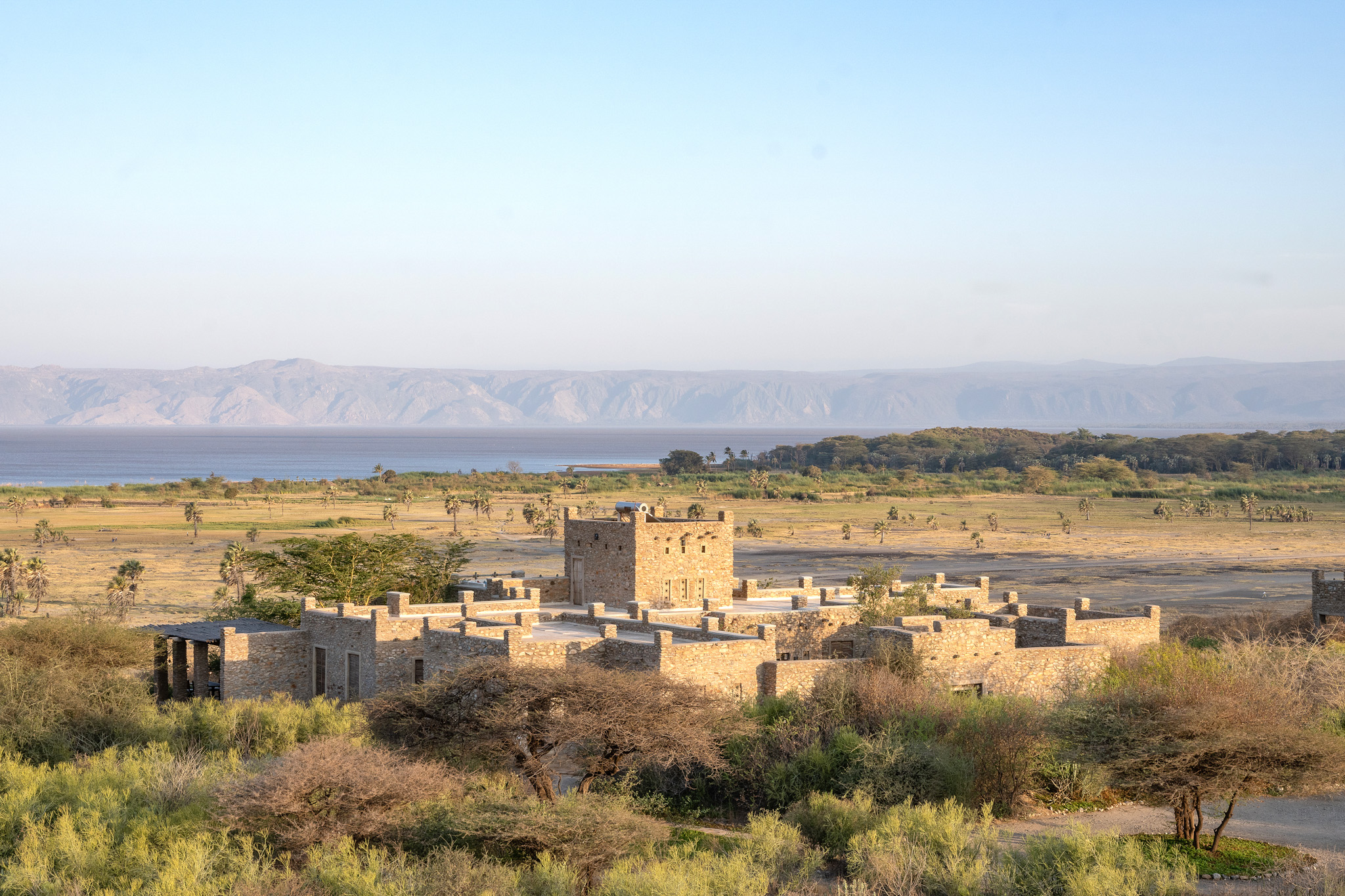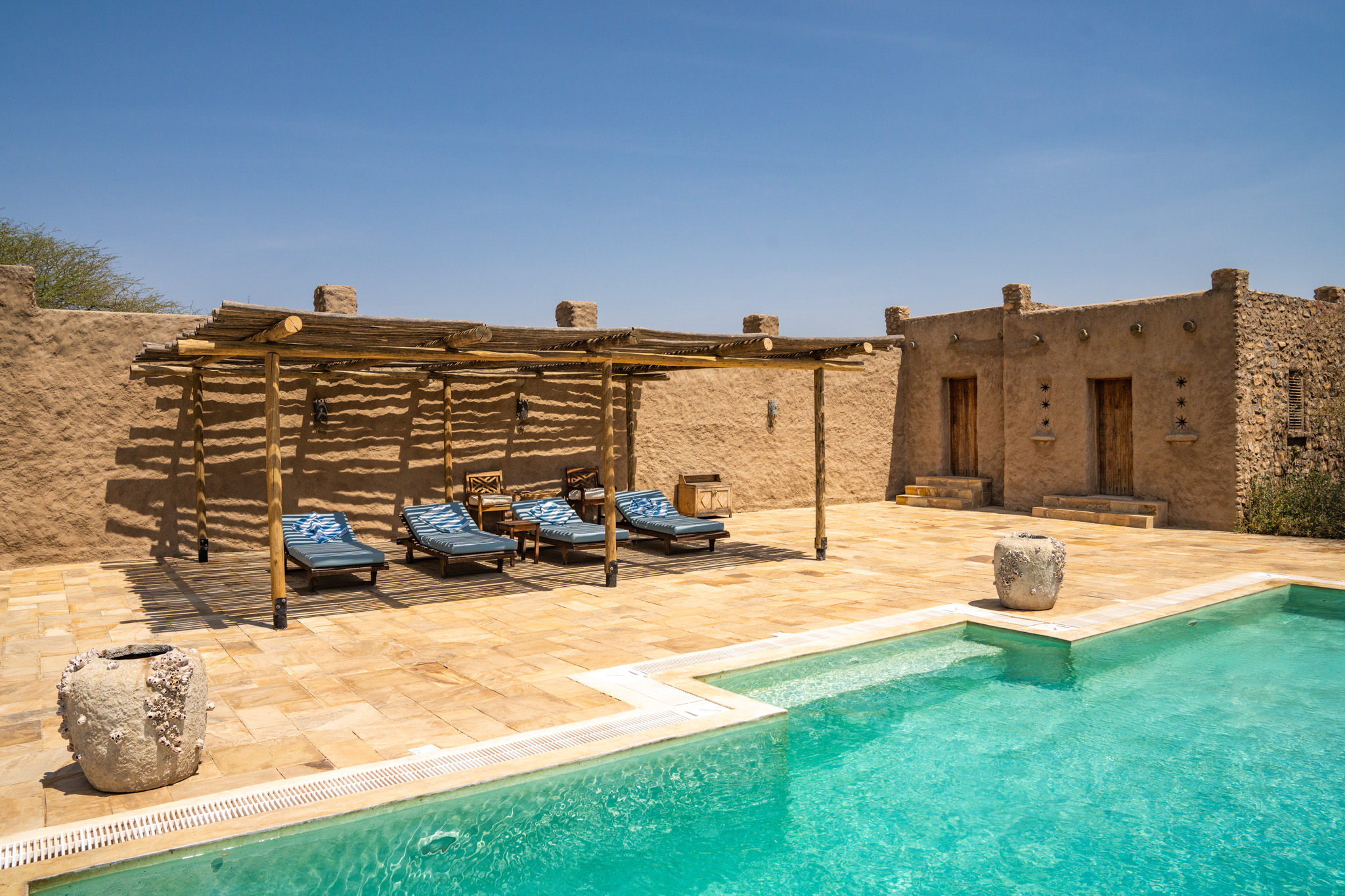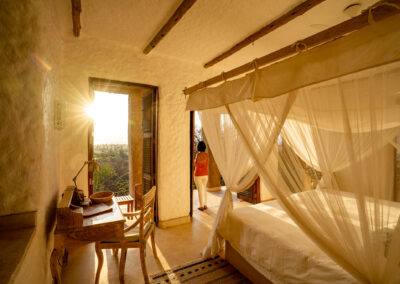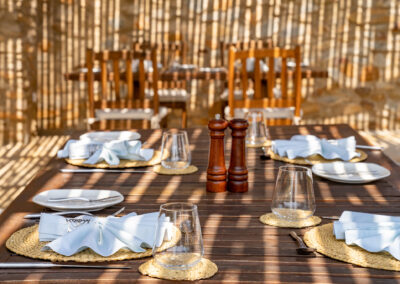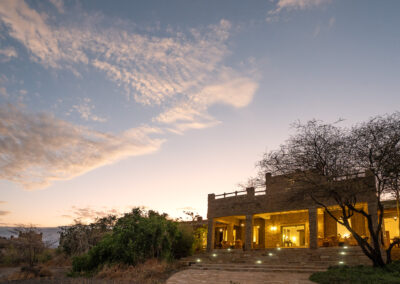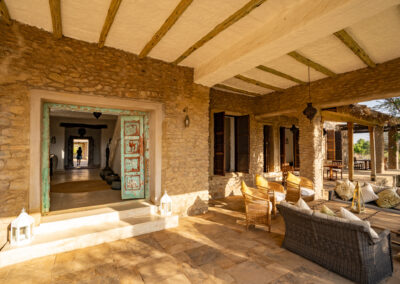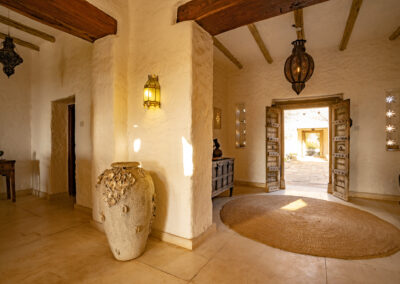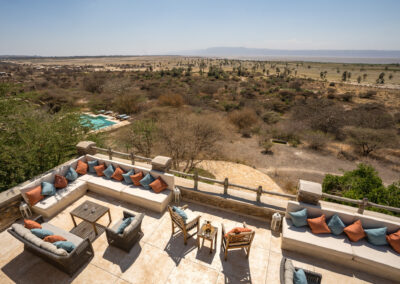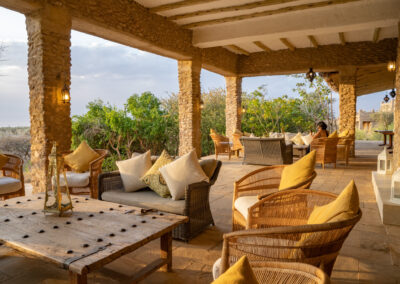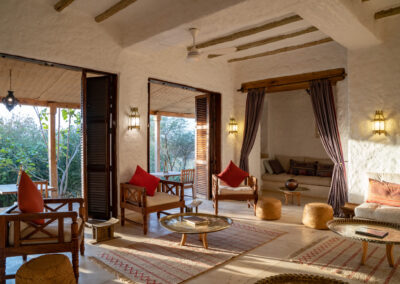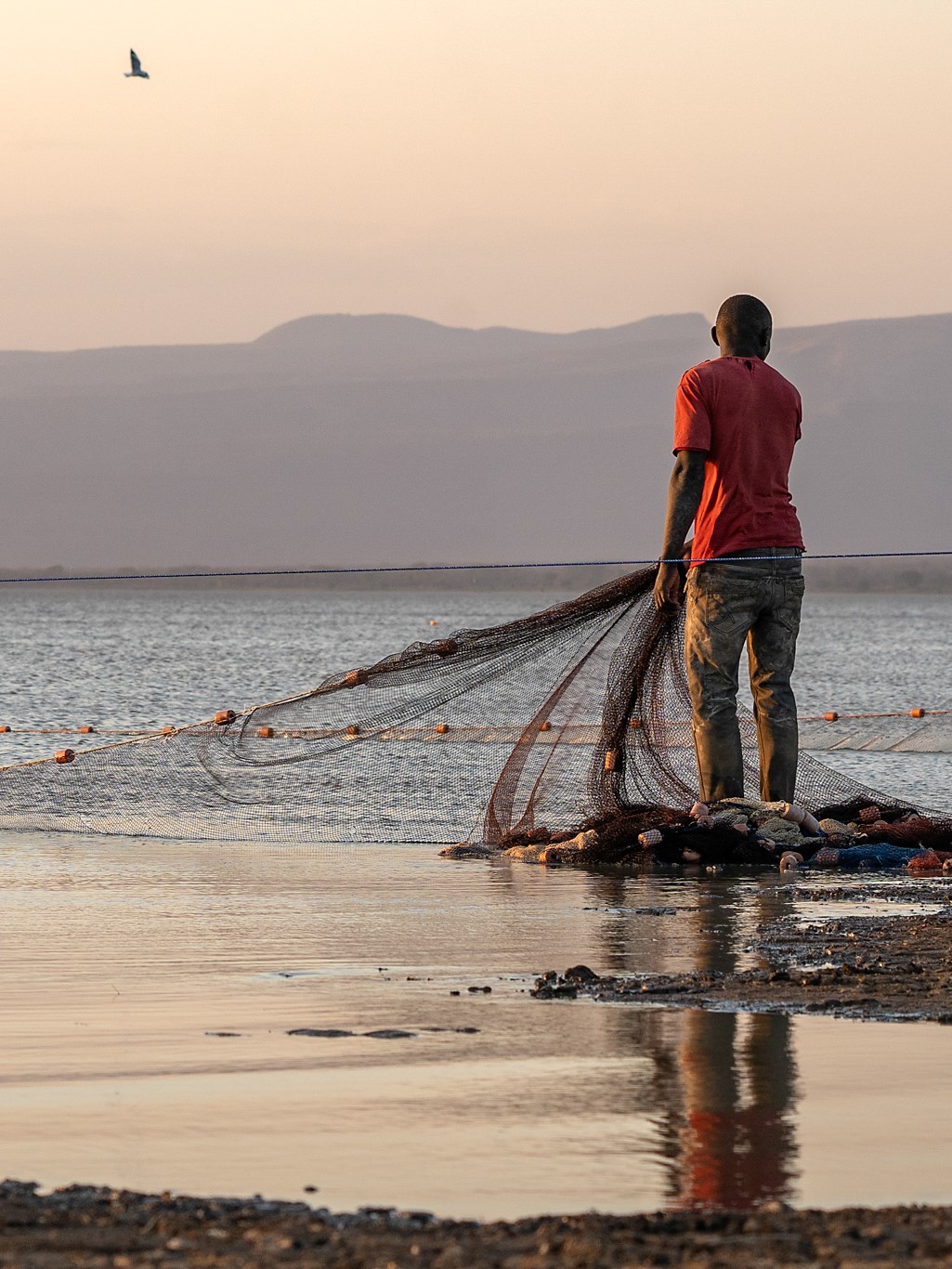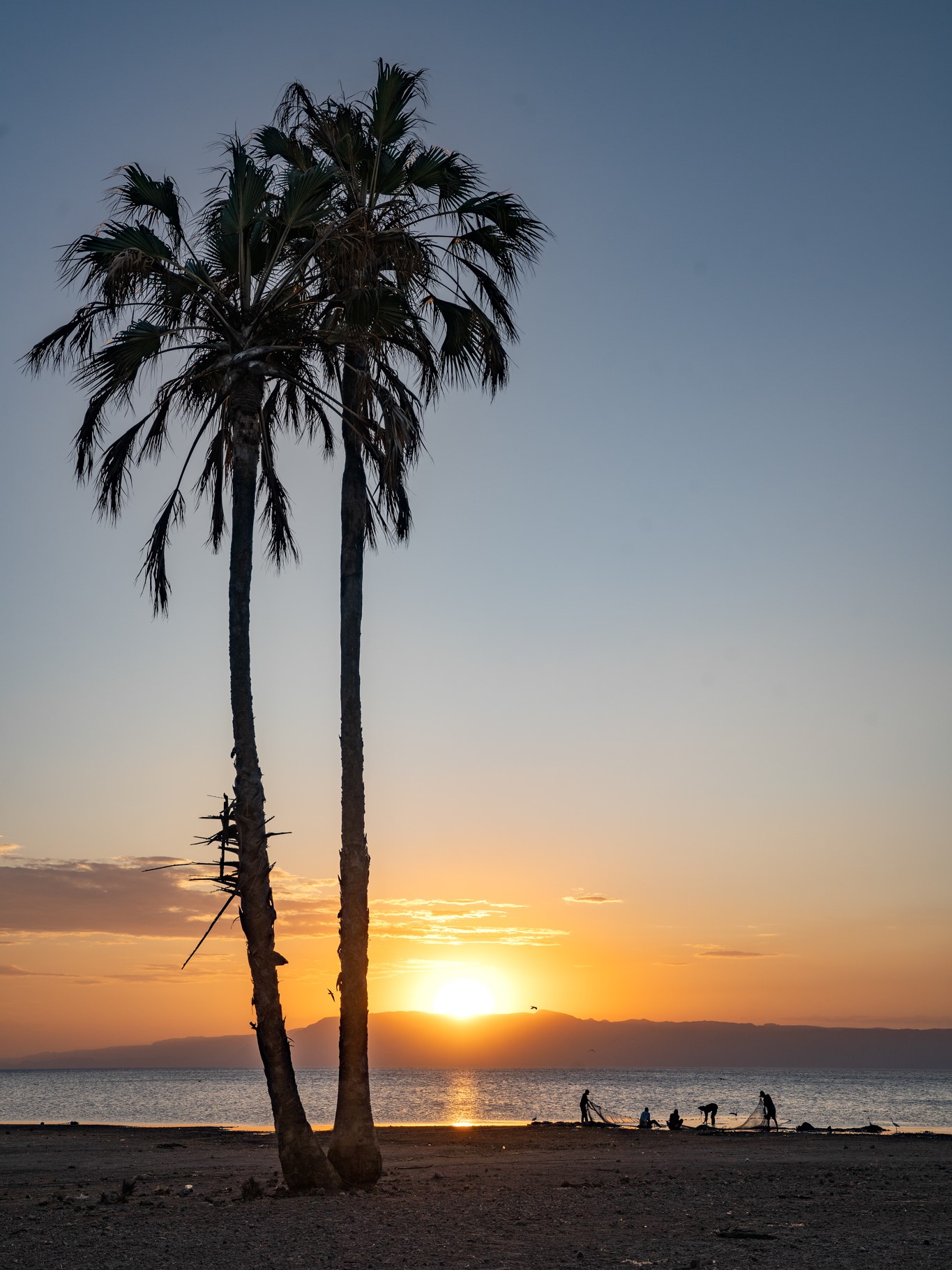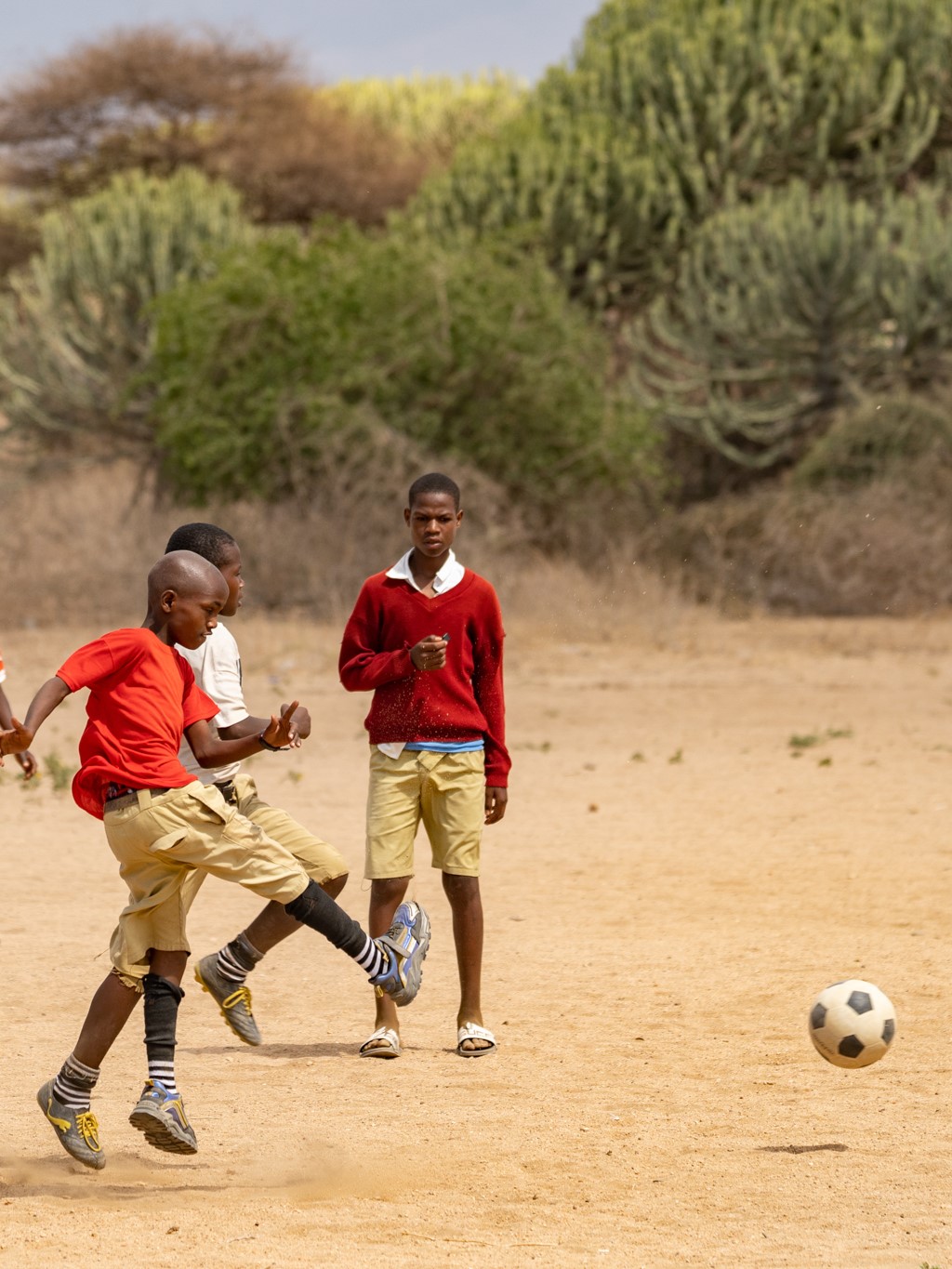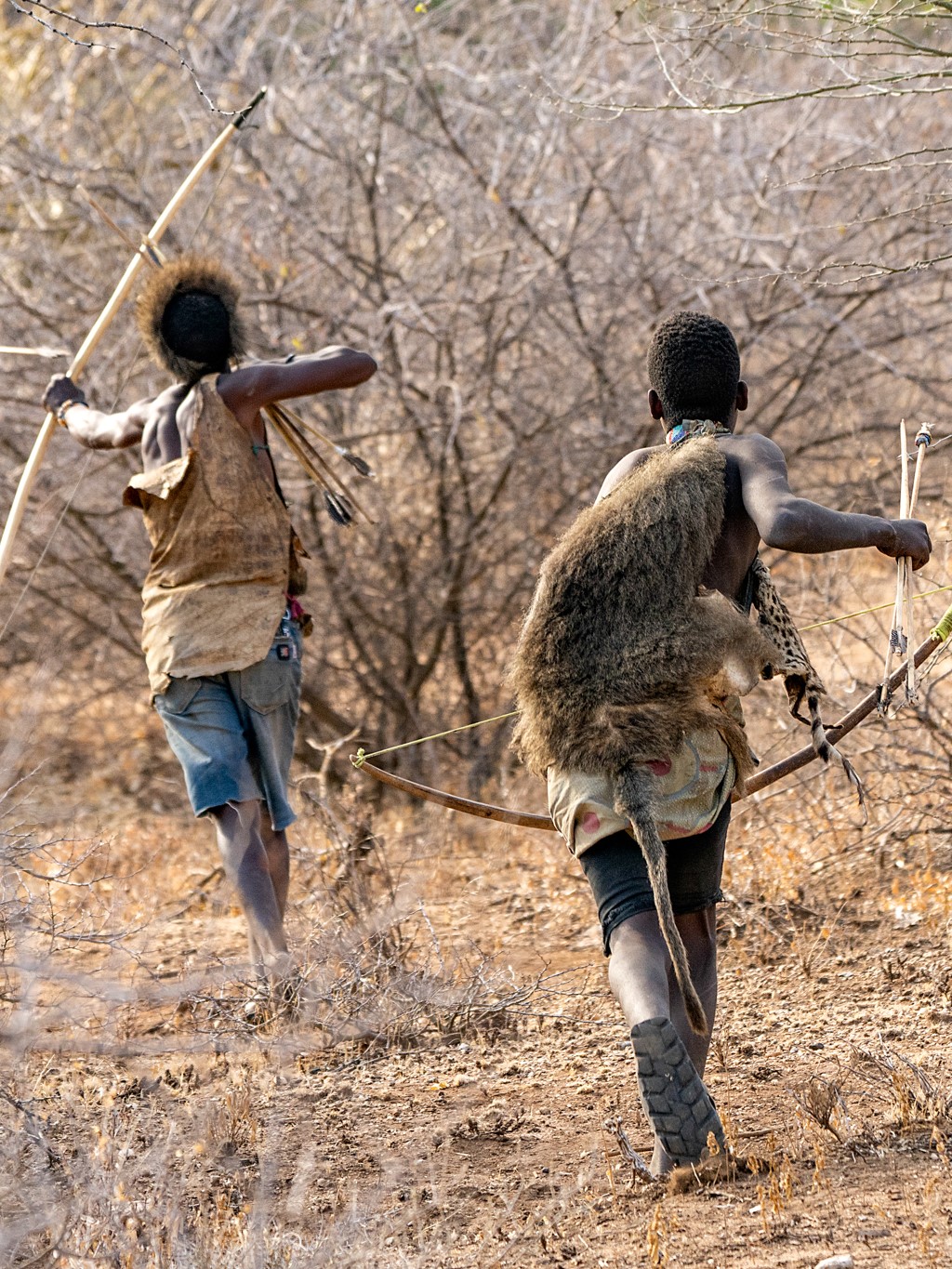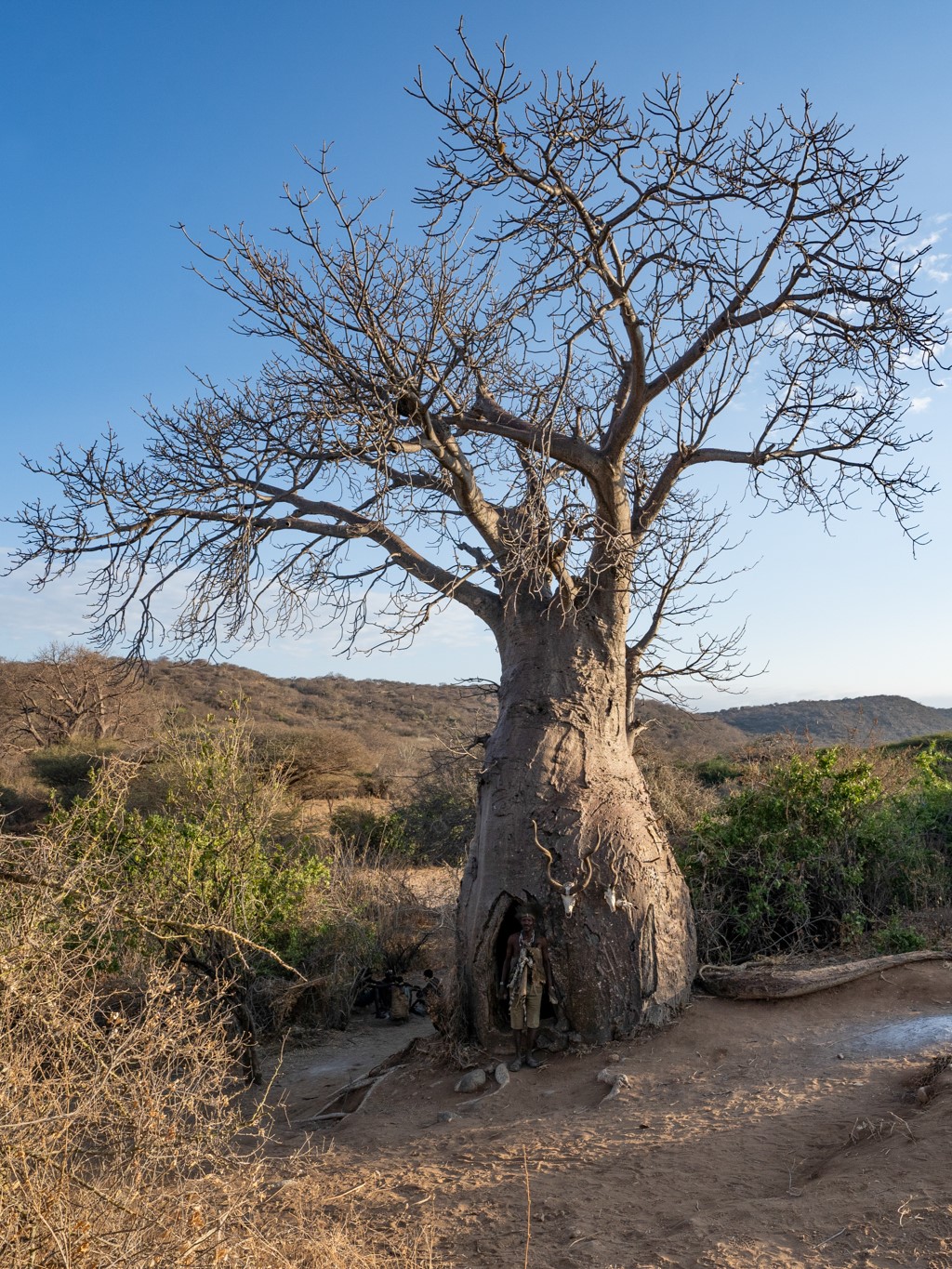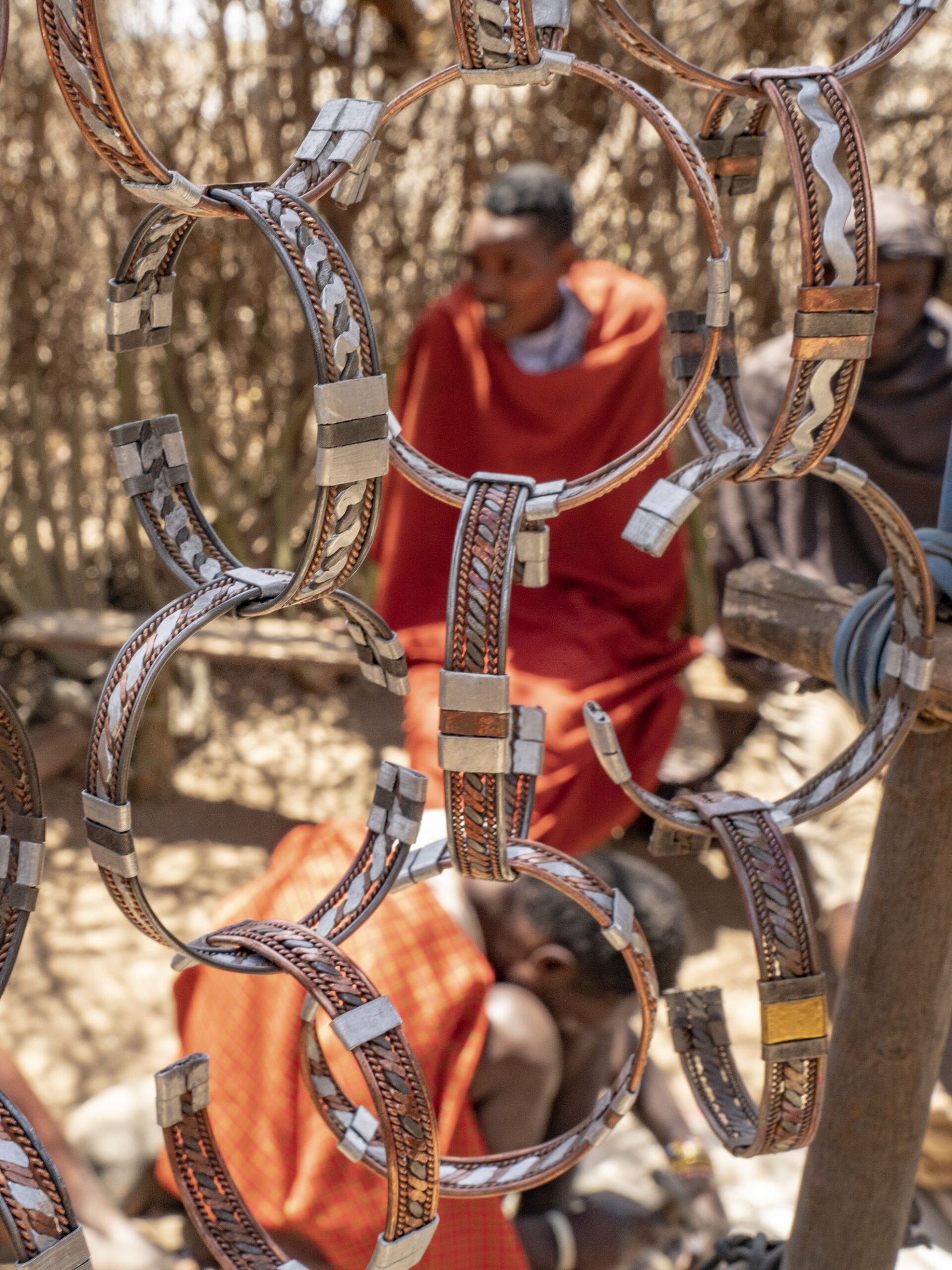
KARIBU
Located between the walls of the Great Rift Valley and Tanzania’s largest soda lake, Lake Eyasi, Ziwani Lodge humbly bows in reflection to the setting sun. Arriving in Ziwani is a cultural journey, migration of people, archaeology, antiquity, landscapes, and architecture blending symbiotically with the environment.
Walking through the North African-style carved doors into an expansive desert landscape of space, colour, and light awakens one to a nomadic lifestyle of movement, adventure, language, music, and community-conscious living.
THE LODGE
A cool eucalyptus face cloth and a refreshing hibiscus and ginger drink wipe away the dust from safari days. Walking through stone and earth plaster walls through archways into an African home, a soul-inspired cultural fusion of African and Arabic design and artefacts tells community stories.
Stepping out onto an earth-coloured stone verandah, I relax on the coloured tones of the surrounding landscape overlooking the Yaida Valley. It is time for a pause in reflection, inviting the mind to still, listen, and watch how the details of light, shadows, and antiquity inspire the mind to peace.
.
A winding stone path leads guests to their cottages. Locally sourced materials create large, open-light restoration spaces with high ceilings to regulate temperature.
The ensuite rooms have writing desks, ceiling fans and large wooden shutters that open to an oasis landscape of palm trees and arid acacia shrubbery overlooking Lake Eyasi.
The Ziwani pool is a space of rest and refuge from the heat after a thrilling adventure hunting and gathering with the Hadzanbe tribe. Guests can enjoy a time of peace and tranquillity by the pool.
Meals are a private experience for guests. Fresh, home-cooked, and locally sourced food can be savoured in a large dining room with windows opening to the verandah or under the cool, dappled shade on the patio, where the natural orchestra of birds plays harmony.
Evening sundowners on the lodge rooftop are a peaceful way to end the day. People share their stories of people, culture, and wildlife. Watch the sun drop beneath the earth’s surface, turning water into a shimmer of golden light. Listen to a chorus of birds in the background and listen to the wind blow backlit grasses. Time in reflection brings the smaller details of nature into focus.
.
‘The Sun does not forget a village just because it is small.’
african proverb
experiences
LAKESHORE FISHING
Read more
Lake Eyasi is a source of food and trade for the surrounding communities. Fishermen camp on the lake shores, rising and setting to the sun. They often row their canoes into the lake, trailing fishing lines and nets to catch shoals of fish. Lakeshore fishing has a rhythm, a continuous flow, and harmony conducted during the rise and fall of the sun each day.
walking in landscape
Read more
The landscapes of Eyasi tell a story as much as their people. The walls of the Great Rift Valley form a basin that has created a life source of water and food for the surrounding community and wildlife. Walking in these landscapes is to find freedom and be humbled by gigantic rock kopjes and baobab trees. Admire natural sculptures rising above the earth decorated by ancient rock paintings, and be like wild warriors listening to the sounds of nature, feeling rooted to the earth.
the ziwani community
Read more
The soul of Ziwani Lodge is its surrounding community, where humanity lives in harmony with nature. We learn by listening to the wisdom of the elders; their stories carry songs of knowledge, the core values of culture and society.
Education, passed from generation to generation in the language of storytellers, offers opportunities for growth and empowerment. Ziwani Lodge supports the growth and development of local primary schools through infrastructure, food programs, sustainability, sanitization blocks, sports facilities, and equipment to empower and encourage education for children in the community.
HADZABE WILDERNESS WALK
Read more
The Hadzabe are a nomadic hunter-gatherer tribe living in the Yaeda Valley in Northern Tanzania. Their lifestyle as hunter-gatherers, walking the wilderness trails in symbiosis with nature, is fascinating. Waking early to the dawn chorus of doves with a steaming hot drink. Driving through a fresh dawn landscape of rolling hills and arriving to sit around a smoking fire. Listening to the soft rhythm of language clicks prepares guests for the imminent raw adventure.
With a few clicks and sudden movement of bows and arrows, the Hadzabe sprint into the wilderness, tracking wildlife and acutely listening for movements in the acacia bush. Their distinctive hunting language formed in whistles helps track down the daily meal. They turn wood and dung to make a fire, sitting crouched on heels, cooking the day’s forage. The hunt ends with woodsmoke and burning feather smells.
fly CAMPING WITH HADZABE
Read more
We began life as nomadic hunter-gatherers, living with a deep respect and consciousness for nature, community, and conservation. Fly camping with the Hadzabe brings guests closer to the call of nature. They learn the stealth of foraging for food, the art of cooking on an open fire, and using the tools nature provides.
The rare opportunity to huddle around a campfire, listening to stories and traditional music, gives guests a unique insight into the resilient survival of the Hadzabe tribe.
DATOGA METAL WORKSHOP
Read more
The Datoga people migrated from the Nile in Northern Africa to Eastern Africa through the Great Rift Valley. They settled in Lake Eyasi, bartering their goods and skills and building self-regulating houses from clay and dung. Family, livestock, and cooking are central to daily life. Products crafted in the metal workshop provide an economy of bartering for goods in the community.
There is a sense of renewal as rugged-edged metal skeleton scraps are melted and transformed into decorative, colourful, patterned jewellery that hangs on display for sale, making jingles in the wind. Old industrial waste is transformed into tradable jewellery under a shaded tree. The Datoga artisans sit on the clay earth; filing hammering, twisting, and moulding metal into delicate jewellery. Arrowheads traded with the Hadzabe for honey and skins, are made from large industrial nails hammered flat and skillfully shaped on a river stone.
the wilderness that makes us human


